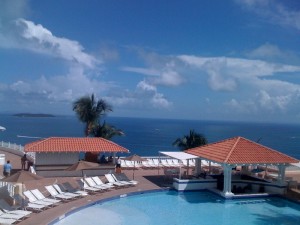Undergraduate students, our research needs you!
Stellar Occultations of Minerva and its satellites – prediction of the paths
October 21, 2009Q&A about the soft money position
November 10, 2009If you are an under-graduate student at UC-berkeley or in the area, and if you have interest in astronomy, you should know that a lot of professors and researchers are looking for motivated students to help them in their research. Very recently, the department of Astronomy at UC-Berkeley opened a web page which list all available research opportunities. There are 15 projects so far in diverse field such as planetary science, galactic and extra-galactic sciences, cosmology which propose to use tools such as data processing, observations or theory. Whatever you like you will find a project that fits you.
I have also a project in this list 🙂 I propose to give the opportunity to an undergraduate student to be involved in my research about multiple asteroids and to participate to the photometric lightcurve measurement program for which we are using a 60cm robotic telescope called super-LOTIS. She/He will prepare the observations, process and analyze them using a Python-IDL software and publish the result in the framework of the several international collaborations. I always had a under-graduate student working with me on several projects over the past 6 years, and i realized how important it was for my research but also for my mind since it helps to keep momentum, focus and motivation.
My two REU 2009 students who was mentioned in my post written on June 23 2009, Abigail Reiss and Emilio Enriquez, are still working with me at SETI Institute. Abigail is finalizing the data analysis of several binary asteroid spectra which were collected at Lick observatory using the KAST instrument. She went back to SFSU to finish her bachelor in astrophysics and she is working one day per week at SETI institute. She will present her work at the AGU Fall conference in San Francisco on December 14-18 2009 and at the Physics Diversity Summit at Washington DC (February 10-14). Emilio is about to finish his master at the SDSU and will come back to SETI Institute to work as a laboratory assistant with me. Over the summer he helped tremendously to finish the comparative spectroscopy study of (90) Antiope (abstract here) that I presented at the DPS conference in Puerto Rico a few weeks ago (did I even tell you I was in Puerto Rico?). He is planning to present this work at the AAS conference (January 3-7 2010) at Washington DC. At SETI institute, he will participate to the data analysis of the Spitzer Telescope data that was collected 1-2 year ago, then we will see… as usual it all depends of the funding of my future projects.
To summarize, if you are an undergraduate student, beyond the travels, the conferences and the fun of working on unique data with state-to-the-art instruments, your early involvement in research is a great opportunity to strengthen your knowledge in maths, physics, and astronomy. You will also gain invaluable preparation for graduate school and future careers as professional scientists. So what are you waiting for?
Franck M.
PS: just as a proof that I really went to Puerto Rico. Below a picture that I snapped quickly from the conference hotel with my iPhone. I still can believe that I did not take time to swim in this water and enjoy the beach. I will write a post about this conference in a few days hopefully.




2 Comments
Dear Franck
I have read your appeal for undergrads. I suggest you to read my Letter on an article of Prof. Carl E. Wieman (Nobel Laureate, Physics, 2001) in the CHANGE, a bi-monthly of the Carnegie Foundation, May-June 2008, p. 5, http://www.changemag.org/Archives/... In fact, I would interested in discussing with you WHY students are not much interested in physics. Contact me, if necessary, on dvsathe@gmail.com
I recently came across your blog and have been reading along. I thought I would leave my first comment. I don’t know what to say except that I have enjoyed reading. Nice blog. I will keep visiting this blog very often.
Alena
http://grantsforeducation.info